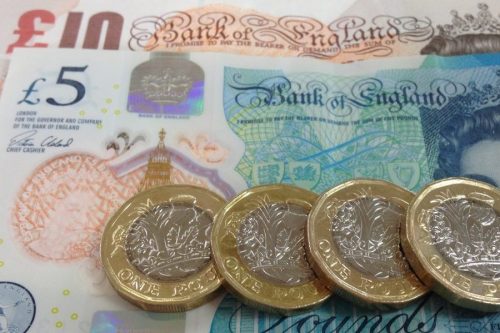Food prices push up inflation to five-year high

Rising food prices, along with escalating transport costs pushed up the annual rate of inflation to 3% September, latest figures have shown.
Data from the Office for National Statistics shows the Consumer Prices Index 12-month rate rose 0.1% last month.
It was last higher in March 2012 and the rise may now heap added pressure on the Bank of England to consider a rise in interest rates.
The ONS said the CPI including owner occupiers’ housing costs (CPIH) 12-month rate was 2.8% last month, up from 2.7% in August 2017.
The main contributors to the increase in the rate are said to be rising prices for food and recreational goods, along with transport costs, which fell by less than they did a year ago.
The upward effects were partially offset by downward contributions from a range of goods and services, in particular clothing prices, which rose by less than they did a year ago.
Commenting, Greater Birmingham Chambers of Commerce said if interest rates were to rise then this would be a further blow to business costs.
As it was, the chamber said the latest figures were a further headache for the Chancellor as he finalised preparations for next month’s Budget.
The Bank of England’s inflation target is 2% and the chamber said it believed this may spur the Monetary Policy Committee into raising interest rates for the first time since March 2009 – even though the economy is still in a fragile state.
GBCC chief executive Paul Faulkner said: “It was no surprise to see interest rates hit a five-year high as we saw a rise in household expenses driving up the cost of living, mainly as a result of higher food and transport prices.
“Despite record levels of employment across the UK, prices are going up faster than earnings and it remains to be seen the impact this will have on consumer spending, a key driver of economic growth in this country.
“Today’s development will also heighten calls for the Bank of England to raise interest rates in November, however, a predicted fall in real wages might still put the brakes on the process.”
He said an initial analysis from the chamber’s latest Quarterly Business Report had shown that local firms are increasingly concerned about rising interest rates.
Food prices have been rising at their highest rate for four years. Inflation has also been running well ahead of pay rises, all of which would make it harder for people to pay their mortgages and credit card bills, bank loans, added Mr Faulkner.
Already this week, a report from the Financial Conduct Authority has warned about the effects of increasing levels consumer debt, which has particularly hit younger people, many of whom are having to resort to borrowing to cover basic living costs.
The FCA report said unsecured household debt in Britain, which includes credit cards, overdrafts and car loans, recently topped £200bn for the first time since the financial crisis, up 10% in the past year.
In addition, higher interest rates could have a major impact on businesses – customers with debts will have less income to spend, because they are paying more interest to lenders, and this could lead to a fall in sales.
Also, firms with overdrafts will have higher costs, because they must now pay more interest.
Mr Faulkner said both the Bank of England and the Chancellor must remain acutely aware of both these factors and react accordingly.









